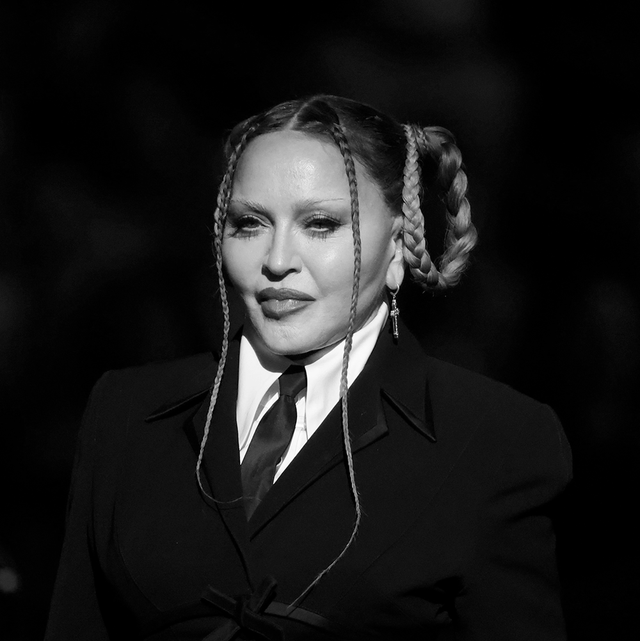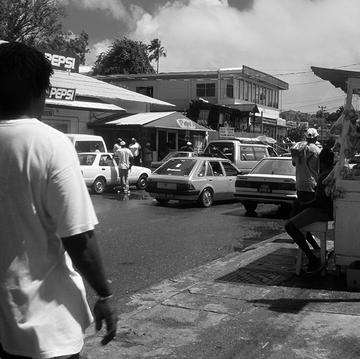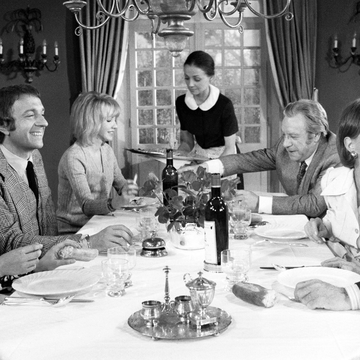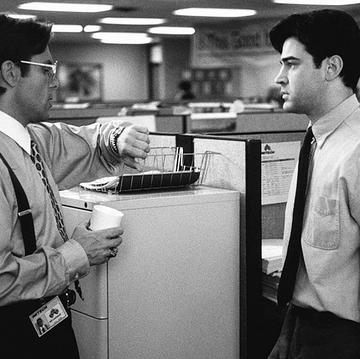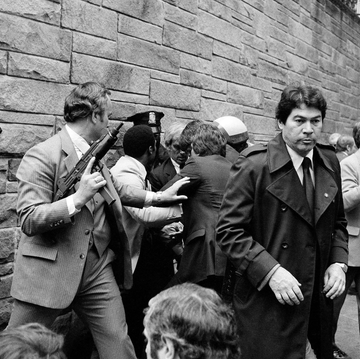In the English language, the best description of Champagne can be found in an evil and unfinished novel by Truman Capote called Answered Prayers, in which a glass of Cristal is described as “a chilled fire of such prickly dryness that, swallowed, seems not to have been swallowed at all, but instead to have turned to vapours on the tongue and burned there to one damp sweet ash”. The image comes to mind whenever I think of Madonna, the now child-frightening singer of legendary sassiness. I remember her sparkle, her dry wit, her excellent sacrilegious energy and her fine sense of the absurd. Martin Amis once said that something changed in Madonna when she went hard-body, but something has changed again now that she’s decided to become an over-plump baby.
There are those, of course — mainly Madonna herself — who feel that any comment on her appearance must be rampant ageism, hateful misogyny and relentless trolling, but I wonder if some responses aren’t just concern. She can do what she wants to her face, but others should have the freedom to say, “What the fuck are you doing?” Nowadays, a person’s belligerence might be expressed in their choice of eyebrows, and their radicalism, likewise, might be shown by their wish to look 50 years younger, but I want to ask what makes smart people grow sick with vanity and hysteria, calling it “artistic freedom”, while growing old disgracefully and seeming angry all the time? I would sooner be the Pope’s shoe-shine boy than be Madonna’s therapist, but if I had to be, I’d push the tissues box in her direction and ask her what she thought she was eradicating by cutting away all those lines.
Even warriors for truth grow old. Madonna’s earlier incarnations were related to what urgently needed changing in the world, not just in herself, and that’s why we loved her, because she was less full of shit than those around her, and, in the 1980s and 1990s, she was one of those who made it easier for people of all sorts to feel OK about themselves. No amount of bungled lip-jobs will take that away, yet you get the impression she wouldn’t recognise the vintage toast being raised, so focused is she on rebarbatively fighting to be youthful again. Ageing beauties, seasoned icons, are fabulous: think of Dietrich and DiMaggio, elegant to the end, the former with a bit of tape here and there. Madonna, on the other hand, is fast making herself into a surgical patchwork of doubts, someone who exhibits all the manias of the moment, seeming not a bit like a wise human being in her sixties with some experience to relate, but like a morose un-realist in denial. Those of us who liked her cackle and who followed her happy delinquency are left marooned. With needles and knives, with poison and filler, she has chased all the lightness out of her physical being, grafting over the top a porcelain armour that gleams with self-seriousness and desperation. Goodbye the old Madonna, she says, and hello the embalmed uniformity she mistakes for cool.
In days of yore, she was a burning star. Ah, for 1992, when a group of French religious nutters brought two lawsuits against the Madge for corrupting the morals of French youth with her ridiculous and slightly coy light-porn book, Sex (“ATTENTION! STRICTEMENT RÉSERVÉAUX ADULTES”). What joy it was to be alive, when the said book was banned in Ireland and Japan but knocked right-wing hate-spreader Rush Limbaugh off the number one spot on the New York Times Best Sellers list. “This year,” roared People magazine at the time, “she went through more faces than Lon Chaney — one minute in Baby Jane pigtails, a cupcake from hell; the next in sour milkmaid gear, Heidi with a mean streak. Her changing gallery of faces is one reason that she’s a sex symbol who inspires a lot of heavy breathing from intellectuals. One landmark of the 1992 publishing list — The Madonna Connection: Representational Politics, Sub-cultural Identities and Cultural Theory. You didn’t get this sort of thing for Petula Clark.”
We’ll come back to the face in a minute. But let’s pause over that highly fashionable tome, which did a lot better in Paris than it did in Milton Keynes. The reason I know this, dear reader, is because, at the tender age of 23, I was a budding star in the world of indecipherable post modern Madonna scholarship. My piece in Deconstructing Madonna was pretty much my debut in the writing racket. I’m not going to quote from my deathless essay — they don’t pay me enough for such Vesuvian eruptions of humiliation — but trust me when I say you’d be less disgusted if I showed you stills from my self-starring, as-yet-unpublished light-porn book, Glasgow Sex. If memory serves, I used the word “patriarchy” 362 times, though I rush to confirm that I was not the author of "The Distance Between Me & You: Madonna & Celestial Navigation (or YouCan Be My Lucky Star)".
When Madonna did her Girlie Show tour in 1993 my pal Sam got tickets. He was in hospital at the time and me and my flatmate Jane had to spring him out to get to Wembley, which we did, me holding his saline drip out of the window of the car as we rolled up the Finchley Road. It was all worth it because Madonna had all the provocations then. “I want to play the places where they hate me most,” she said very winningly at the time, and at the after-party — filled with EastEnders stars and freeloading, post-modern intellectuals — there was a sense that Madonna was briefly more punk than the Ramones and the Sex Pistols combined. But then something happened: in the 2000s and in the 2010s, the threat of human mortality began to confuse Madonna’s sense of rebellion. She married Guy Ritchie. She started wearing cowgirl hats. She adopted the name Esther. She began to overuse the word “journey”. She took up the eyepatch. And, most of all, she began messing with her body. The results are grim. She assumes people who don’t love such “transformations” are “haters”, but maybe we’re not, maybe we’re just buffoons who think self-mutilation is a loser’s game, and that a lifetime’s brilliant preaching about accepting yourself should pay higher dividends for her. “You won’t break my soul,”she says, channelling Beyoncé, in response to people who are often just trying to say, “steady on, Madge”. But as she kicks off her giant Celebration tour, she might pause in some of those corners of the world, just for a minute, and think of a way to say to all those people out therein the dark — boys, girls and non-specific —that the years are not your enemy and growing old is a freedom, too.
Andrew O'Hagan is an editor-at-large for Esquire and the author of, most recently, the novel Mayflies, adapted as as drama on BBC One last year. This piece appears in the Summer 2023 issue of Esquire.
